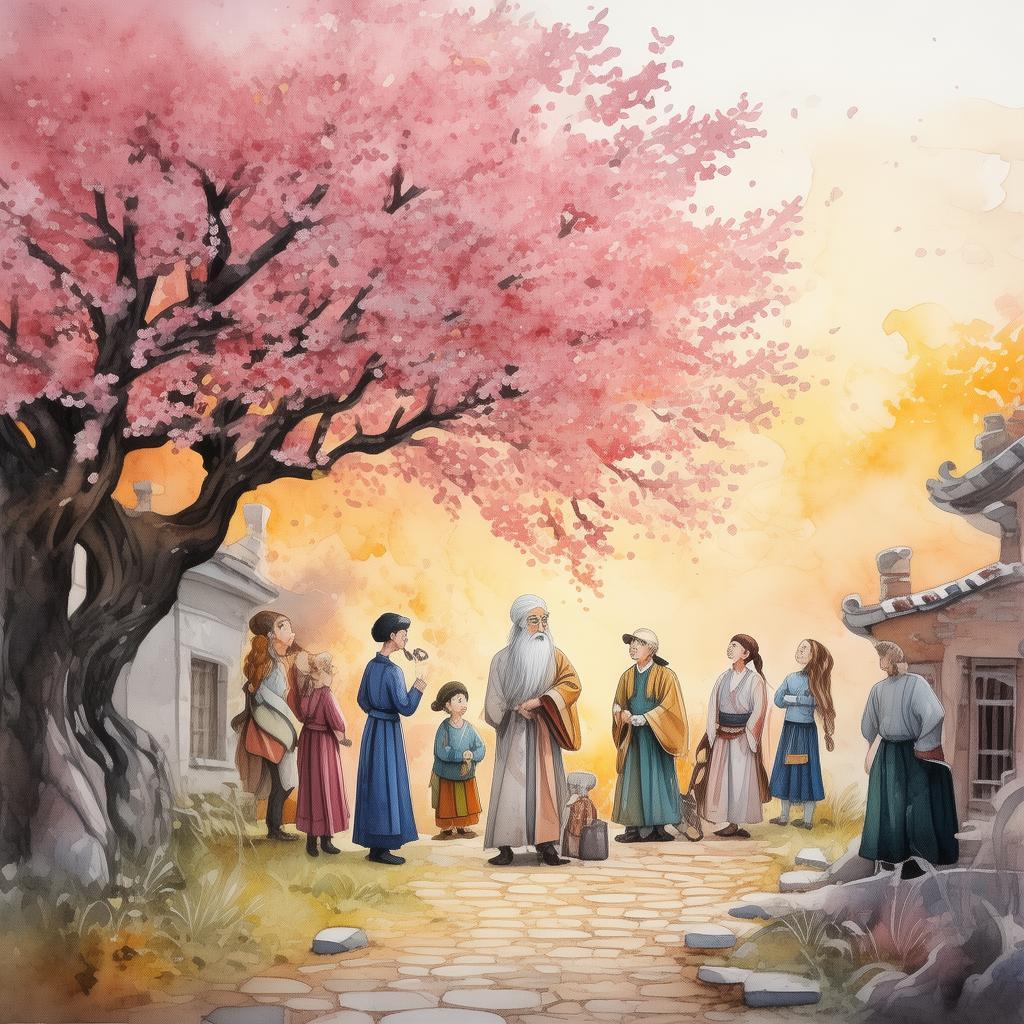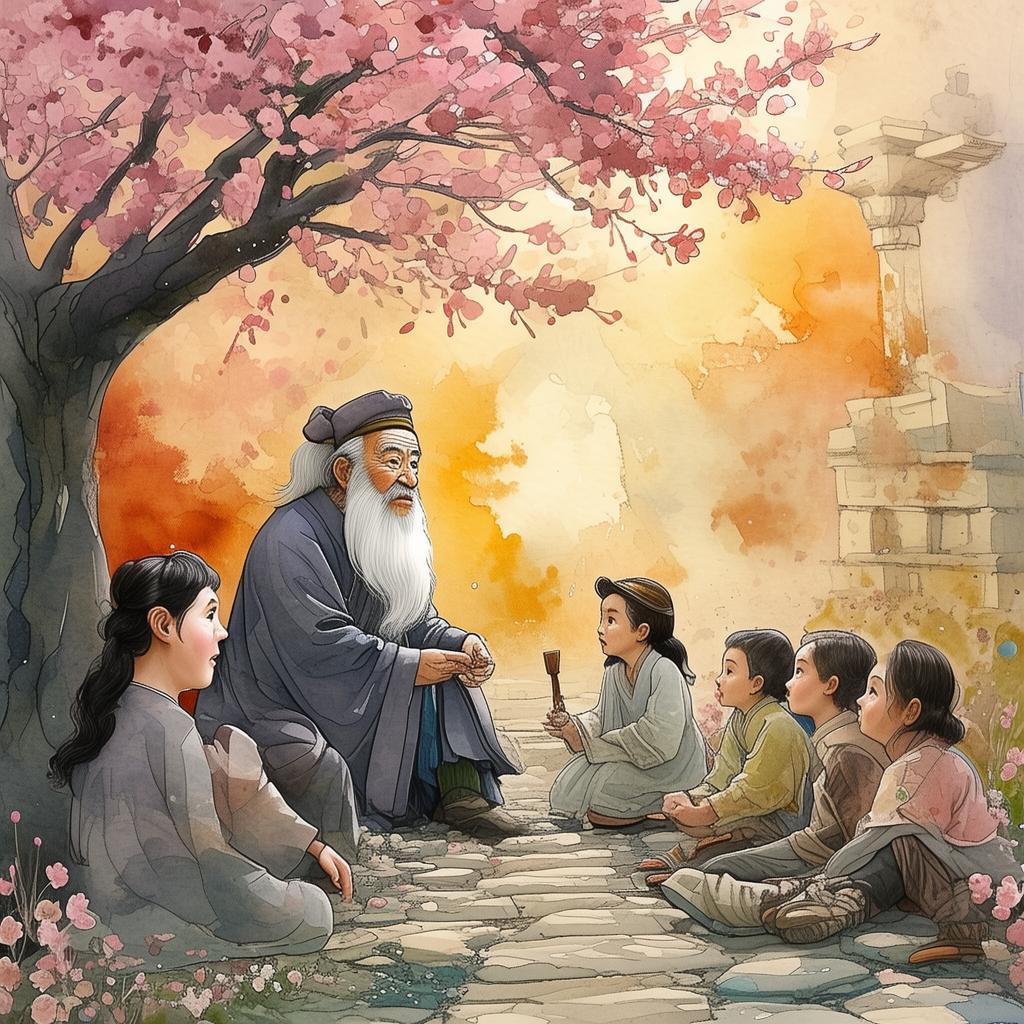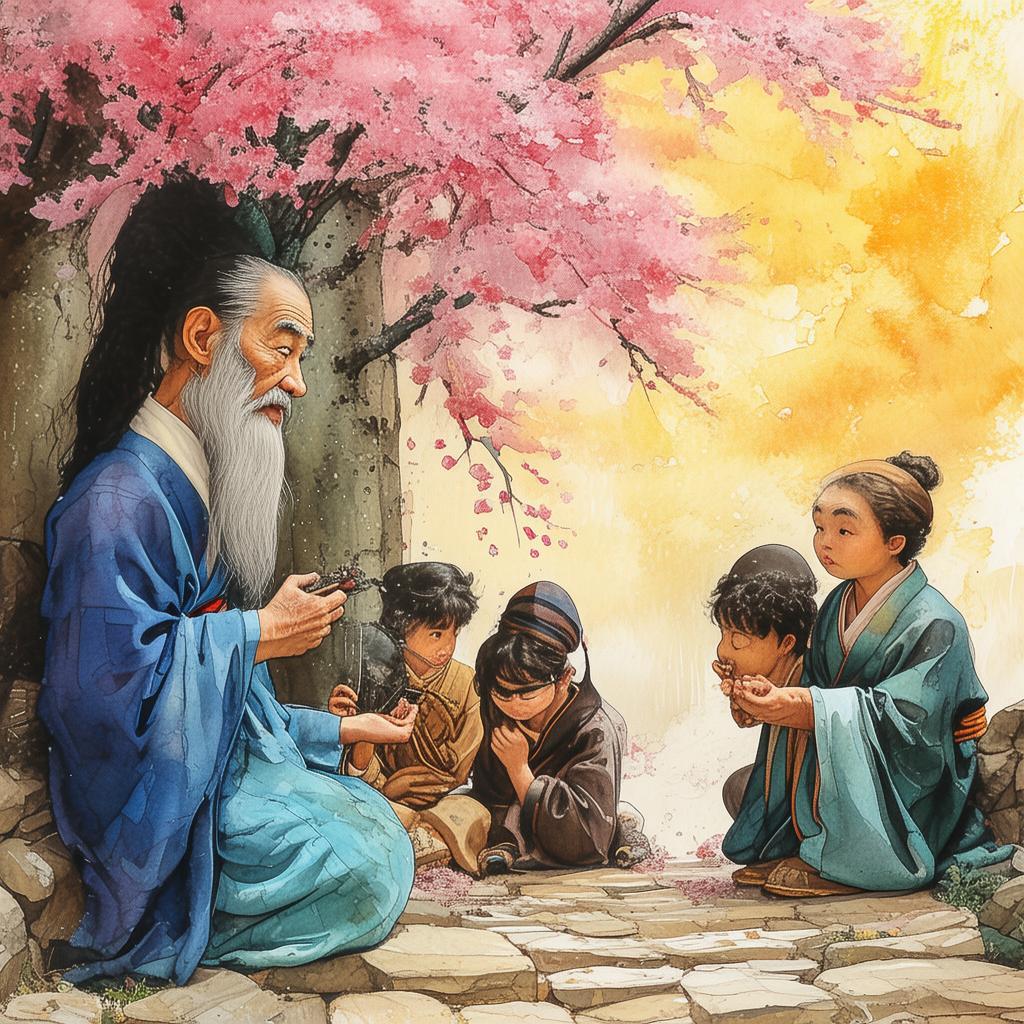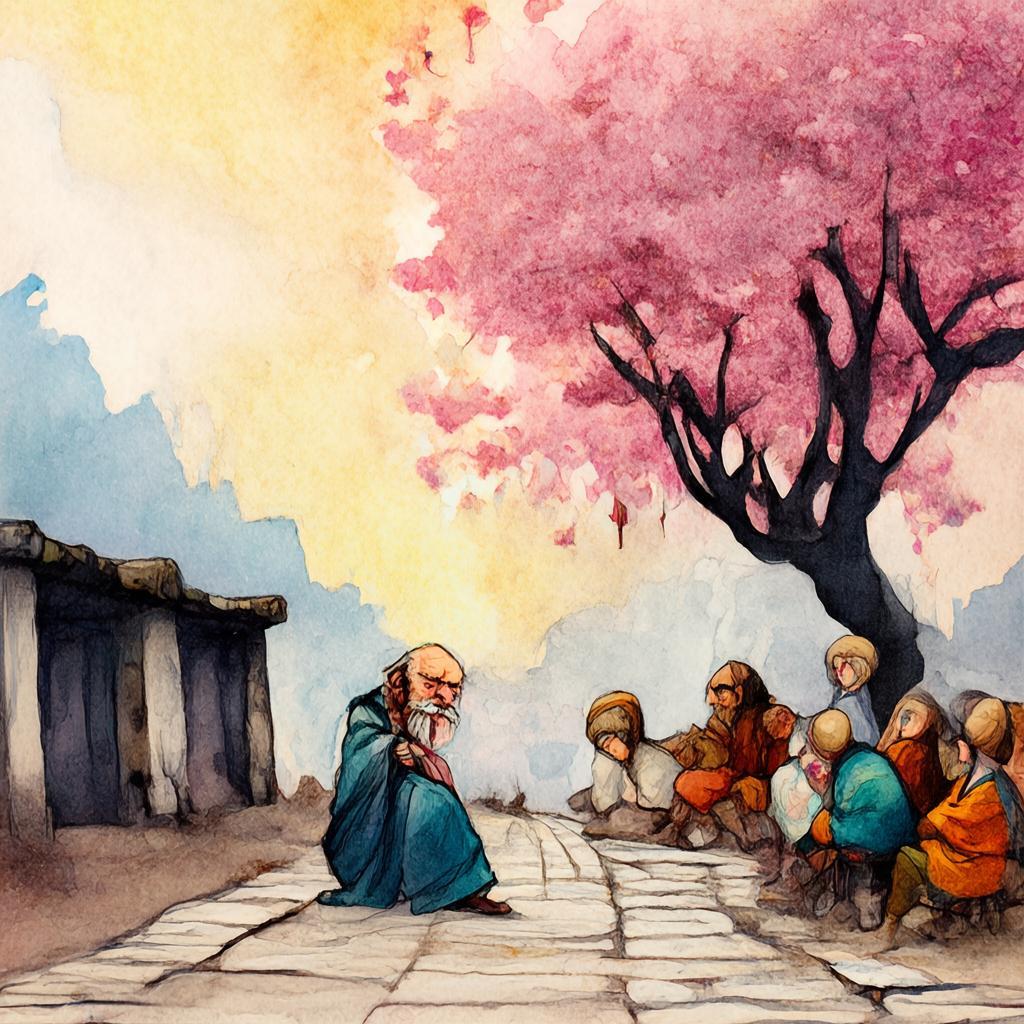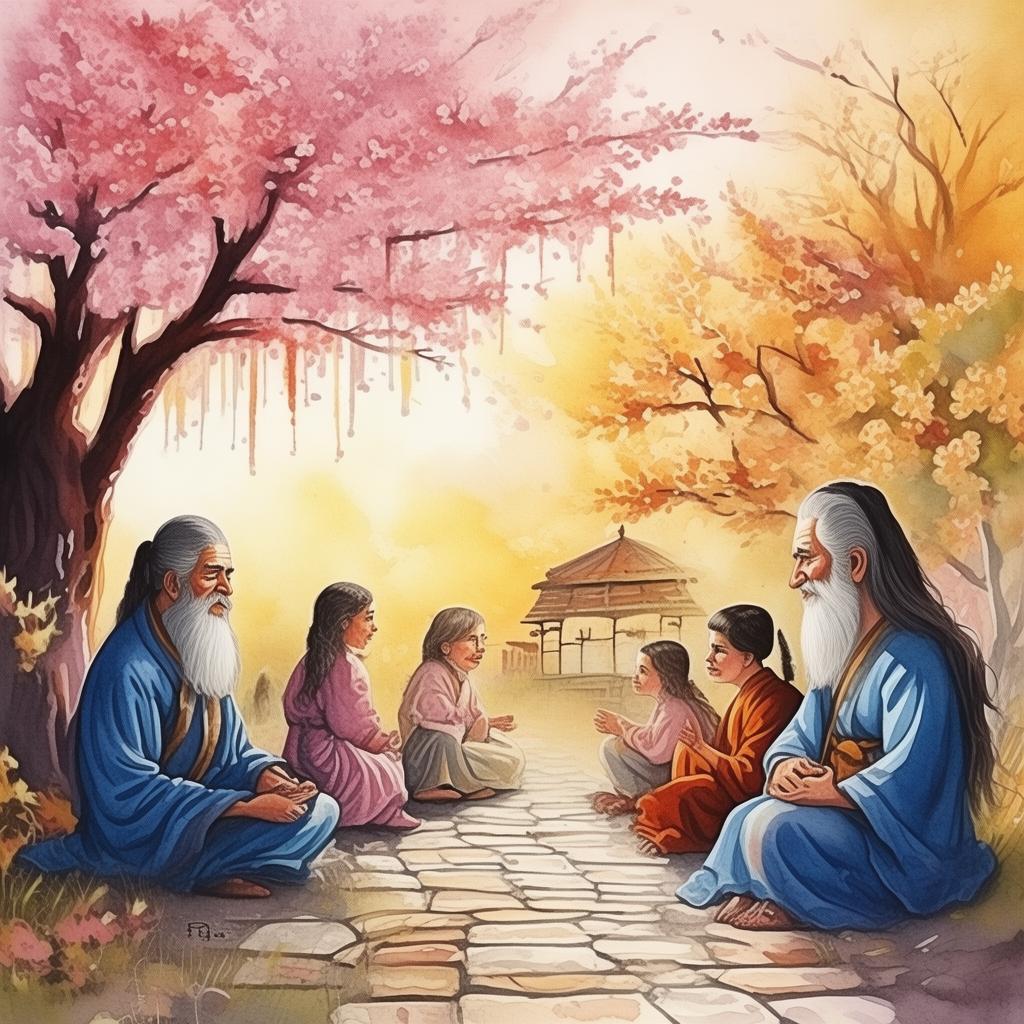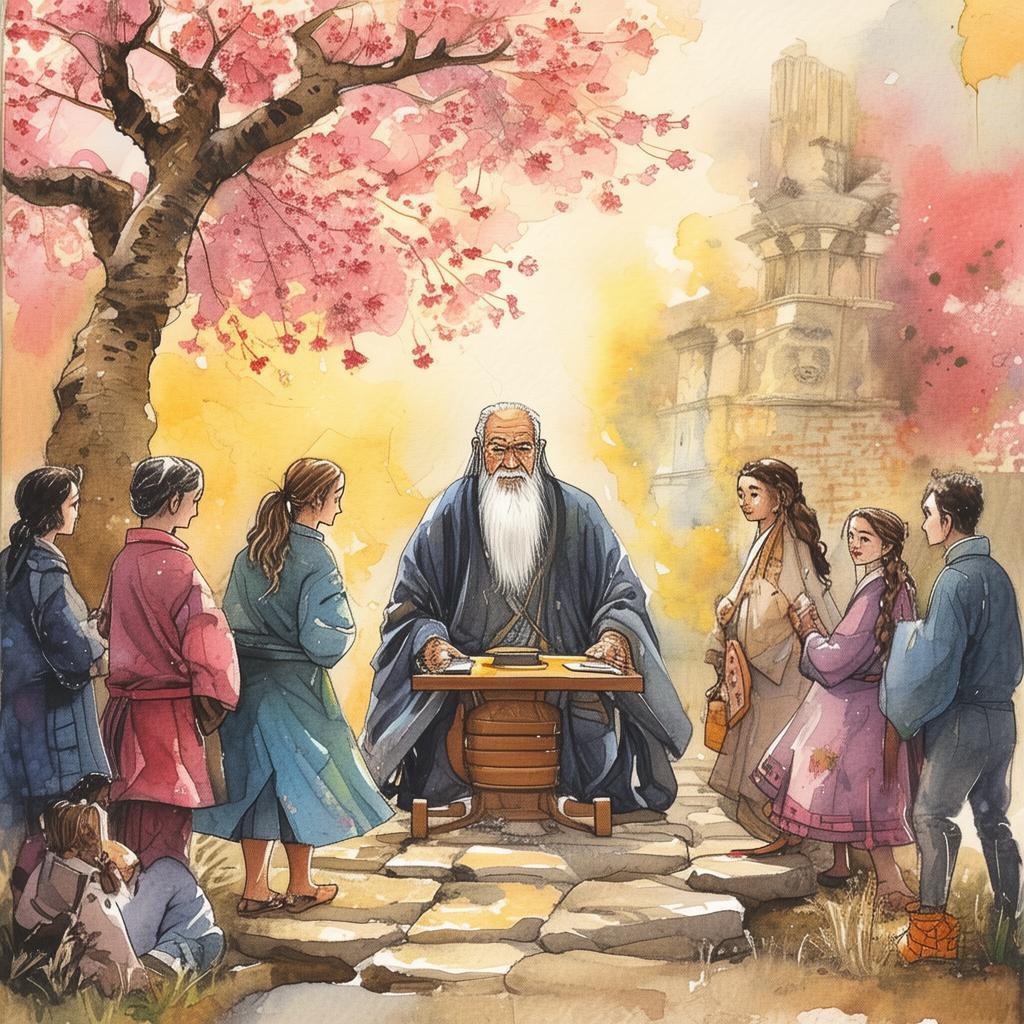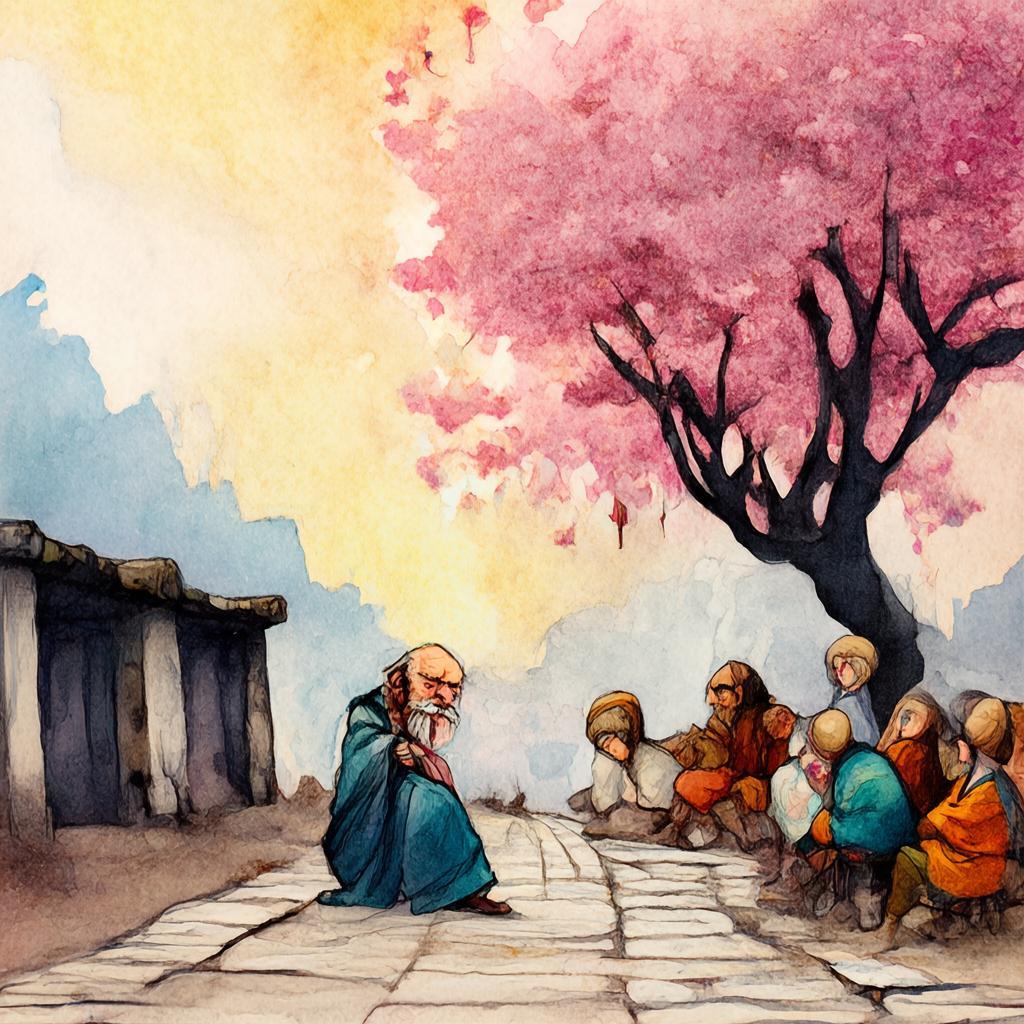The Echoes of the Forgotten: A Child's Silent Lament
In the heart of the ancient city of Ling, there stood a garden known to the locals as the Lamenting Garden. Its name, whispered through generations, held a somber secret. The garden was said to be the final resting place of a child whose unheeded song echoed through the ages, a silent lament that resonated with those who dared to listen.
In the bustling city, amidst the cacophony of life, lived a young girl named Mei. Her eyes, a deep shade of amber, held a world of unspoken stories. Mei was an artist, with a talent for painting that seemed to spring from a well of sorrow. Her drawings were stark and haunting, capturing the essence of the forgotten and the ignored.
One day, while Mei wandered through the Lamenting Garden, she stumbled upon a peculiar tree. It was unlike any she had ever seen, its branches twisted and gnarled, as if they had been plucked from the depths of despair. The leaves were a muted green, devoid of life, and at the base of the tree lay a small, intricately carved wooden box.
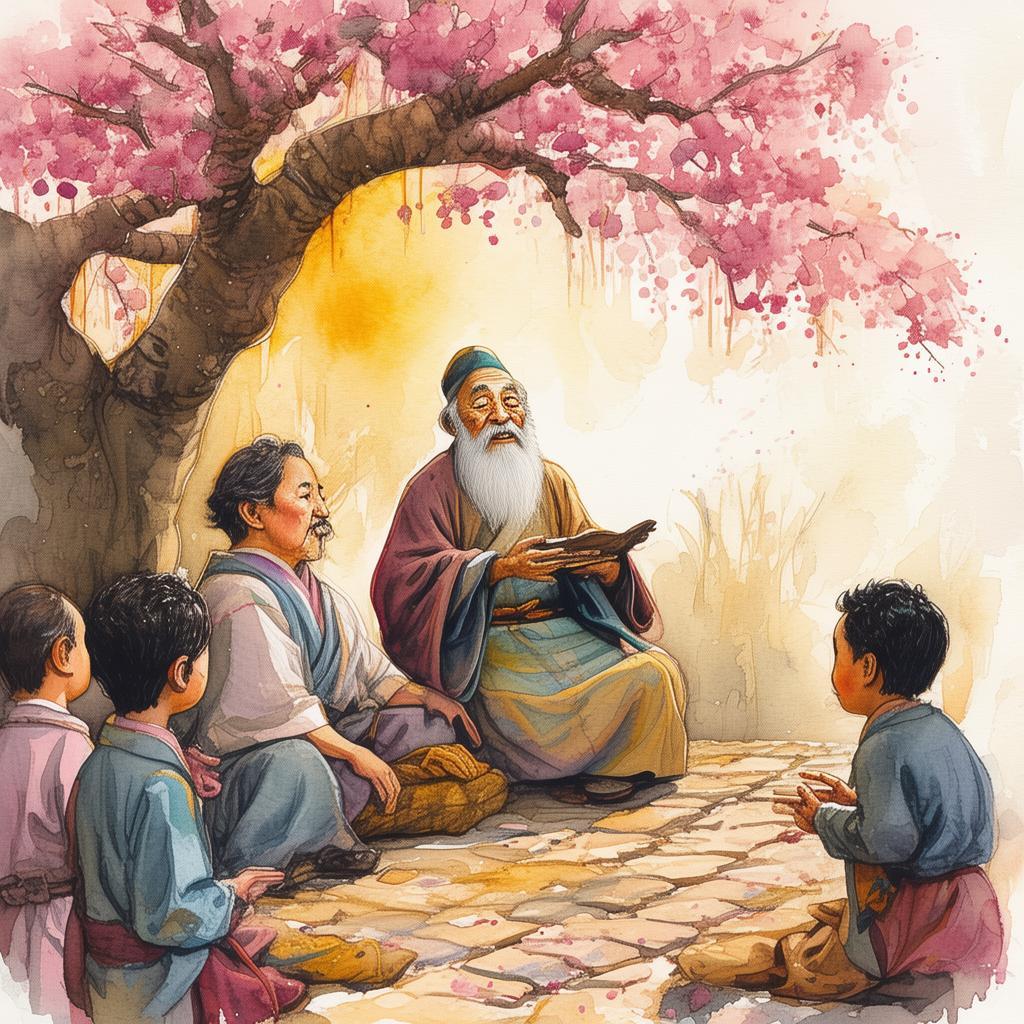
Mei's curiosity got the better of her, and she reached out to lift the box. As her fingers brushed against the cool surface, a soft, haunting melody began to play, the kind that one might hear in a dream, where time stands still and the world is silent. The song was a child's lullaby, sweet and sad, and it seemed to be calling to her.
In that moment, Mei felt a connection to the song and the child it represented. She opened the box to find a small, delicate painting of a child, her eyes closed, and a lily in her hand. The painting was signed with a single, unassuming character: "Ling."
Mei's heart ached with the realization that this child had once existed, with hopes and dreams that had been unceremoniously snuffed out. The child's silent lament had become a part of the garden, a reminder that some voices are never heard, and some stories are never told.
Determined to honor the child's memory, Mei decided to paint a series of works that would give voice to the unheeded songs of the forgotten. She spent countless hours at the garden, her brush moving with a passion that spoke of a soul searching for its own voice.
As Mei's paintings began to gain attention, the city's inhabitants found themselves drawn to the garden. They saw in Mei's work a reflection of their own lives, where the whispers of the ignored had finally been heard.
One evening, as Mei sat beneath the peculiar tree, a group of people approached her. They were the parents of the child whose song had been unheeded, and they had heard of Mei's paintings. They thanked her for giving their daughter a voice, for making her story known.
In that moment, Mei understood the true power of her art. It was not just a medium for her to express her emotions, but a bridge between the living and the forgotten. Her paintings had become a testament to the enduring strength of the human spirit, a reminder that even in the darkest of times, a single voice can change the world.
The Lamenting Garden, once a place of silence and solitude, had become a sanctuary for those who sought solace in the stories of the ignored. And in Mei, the garden had found its guardian, a child whose unheeded song had finally been heard.
And so, the garden thrived, its trees once again filled with life, and Mei's paintings continued to be a beacon of hope, a testament to the fact that in the quietest of places, the loudest of stories can be found.
✨ Original Statement ✨
All articles published on this website (including but not limited to text, images, videos, and other content) are original or authorized for reposting and are protected by relevant laws. Without the explicit written permission of this website, no individual or organization may copy, modify, repost, or use the content for commercial purposes.
If you need to quote or cooperate, please contact this site for authorization. We reserve the right to pursue legal responsibility for any unauthorized use.
Hereby declared.
